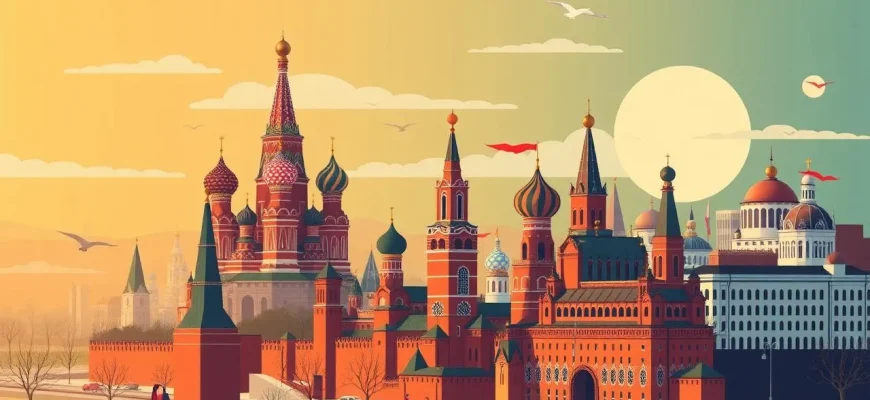Moscow, the heart of Russia, has always been a muse for filmmakers, especially during the Soviet era. These films not only showcase the architectural beauty and historical significance of Moscow but also delve into the lives of its inhabitants, reflecting the spirit of the time. Here's a curated list of 10 Soviet films that capture the essence of Moscow, each with its unique narrative and cultural insights.

The Twelve Chairs (1971)
Description: A satirical comedy about the search for hidden treasure in post-revolutionary Moscow, offering a critique of Soviet bureaucracy and society.
Fact: The film was based on a novel by Ilf and Petrov, which has been adapted multiple times.
 30 Days Free
30 Days Free 
The Cranes Are Flying (1957)
Description: This poignant war drama captures the life of a young woman in Moscow during WWII, showcasing the city's resilience and the personal sacrifices of its people.
Fact: The film won the Palme d'Or at the Cannes Film Festival, making it one of the few Soviet films to achieve such international acclaim.
 30 Days Free
30 Days Free 
Moscow Does Not Believe in Tears (1980)
Description: A sweeping drama that spans three decades, this film follows the lives of three women in Moscow, reflecting the city's transformation and the changing roles of women.
Fact: It won the Academy Award for Best Foreign Language Film, highlighting its universal appeal.
 30 Days Free
30 Days Free 
The Irony of Fate, or Enjoy Your Bath! (1976)
Description: This beloved New Year's Eve comedy features a man who, after a night of drinking, ends up in a Moscow apartment identical to his own, leading to a series of humorous and romantic misadventures.
Fact: It's a tradition in Russia to watch this film every New Year's Eve.
 30 Days Free
30 Days Free 
Office Romance (1977)
Description: A comedic look at workplace dynamics in Moscow, where a boss's attempt to improve efficiency leads to unexpected romantic developments.
Fact: The film was one of the highest-grossing Soviet films of all time.
 30 Days Free
30 Days Free 
The Diamond Arm (1969)
Description: This comedy follows a Moscow man who unwittingly becomes involved in a smuggling operation, providing a humorous look at life in the Soviet capital.
Fact: The film is known for its memorable catchphrases that have become part of Russian pop culture.
 30 Days Free
30 Days Free 
The Pokrovsky Gate (1982)
Description: This film provides a nostalgic look at life in a Moscow communal apartment in the 1950s, capturing the essence of the era's social and cultural changes.
Fact: It's often cited for its authentic portrayal of Moscow's everyday life.
 30 Days Free
30 Days Free 
The Garage (1979)
Description: A satirical take on the Soviet system, where a group of Moscow residents fight over parking spaces in a communal garage, highlighting the absurdities of bureaucracy.
Fact: The film was initially banned due to its critical portrayal of Soviet life.
 30 Days Free
30 Days Free 
The Very Same Munchhausen (1979)
Description: Although not set entirely in Moscow, this film uses the city as a backdrop for its whimsical retelling of the Baron Munchhausen tales, blending fantasy with Soviet reality.
Fact: It's known for its surreal humor and philosophical undertones.
 30 Days Free
30 Days Free 
A Cruel Romance (1984)
Description: Set in 19th-century Moscow, this film explores themes of love, betrayal, and societal norms, offering a glimpse into the city's historical past.
Fact: The film is based on the play "Without a Dowry" by Alexander Ostrovsky, known for its critique of Russian society.
 30 Days Free
30 Days Free 








